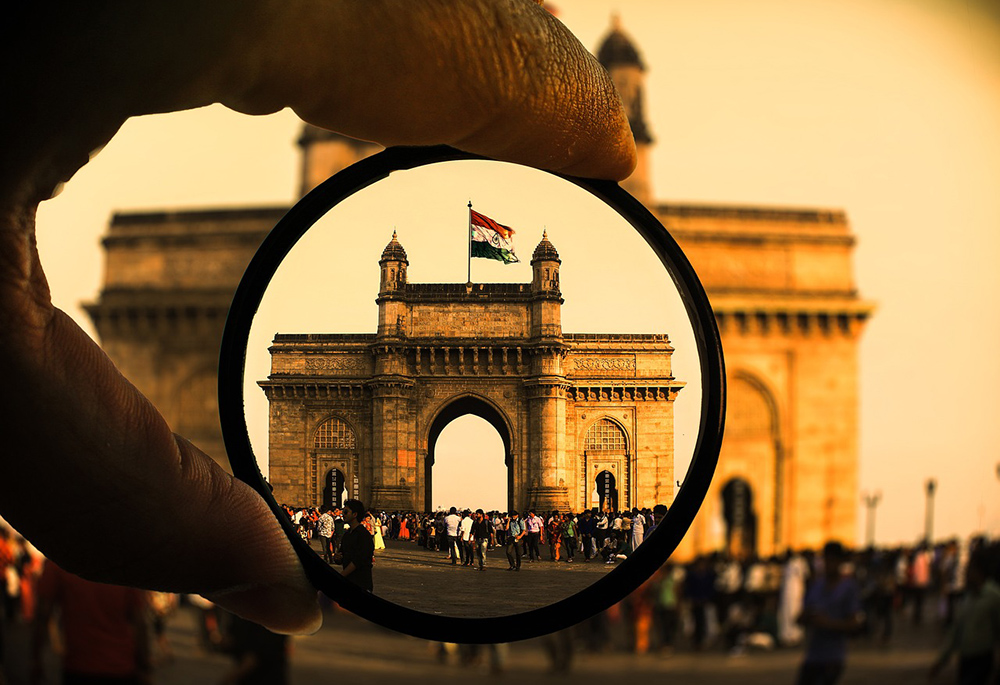
(Pixabay/Darshak Pandya)
The world's largest democracy seems to be crumbling due to the lack of visionary leaders. Unfortunately, the ones at the helm of affairs came to office not to govern this nation but to change the very idea of India.
What is happening in India is a total breakdown of governance. The concept of governance is not in any way in the mind of those who had taken an oath to safeguard the secular, socialist, sovereign, democratic idea of this republic. Though our former leaders were visionary, placing India as a progressive nation on the global map, we have drastically fallen low on every index, making us a poor nation.
The very idea of India is fast changing from the same fabric of inclusiveness and pluralism with rich diversity. What we are experiencing is exclusiveness and uniformity, targeting the minority sections of our society. Majoritarianism is on the agenda, discrimination at every level, which in a way, is freeing those called to serve to use the divide-and-rule card.
A nation is held together by its ethos —and its constitution — which was framed with the utmost care, ensuring the safety and security of every Indian. Today, this is neither practiced, upheld, or valued. Contrary to this is a gross violation of the rights of individuals and groups who dare to speak a language unacceptable to those who govern.
There is a vast difference between those who come to power to govern or control. Control has no place in democratic functioning, yet there are innumerable incidents where individuals and institutions have been paying heavy prices for living the values of the constitution. Silencing people, torture and harassment have become the rule of the day. Glaring examples come before us if we go down memory lane for the past nine years.
Change is inevitable, but when India voted for change in 2014, at least the vast majority of the people had no idea that this would mean the destruction of this beautiful nation. India has always been known as a land of diversity, a solace of spirituality with its cradle of many religions, holding its people together. People flocked to India to experience the richness of this land, with its wealth of language, culture, dress, food habits, yet one nation. We were living side by side, respecting the differences, and participating in life with its celebrations.
Gradually yet steadily, the narrow minds began to make pathways into every aspect of this great nation. Division, hatred and venom have now filled the hearts and minds of our people. Where does this sudden fear gripping us come from? Why are we so insecure when we lived as communities who cared, celebrated, and participated in life at all levels for decades? How is it until today that we begin to ask the very small, insignificant questions of creed, caste, and class? Why is the dominant group so severely threatened that they oppose anything the majority citizen asks for?
The dominant group is on the move to change the very fabric of this great nation from a socialistic democratic republic to a capitalistic nation. How can this equation be accepted in a country where the majority of its people are from the non-dominant class? This is perhaps the crux of the problem. The many drastic changes that have been taking place in our country are perhaps a global phenomenon on the rise.
Advertisement
The "smart city" concept in every big city of India is a way of preparedness for the capitalist to rule, to take over the small livelihoods of people. A nation where the rate of literacy, health care, and livelihood is not a priority for those who govern; who do not allocate sufficient amounts in the budget for the development of its people, giving signals and proving that people do not matter.
Governance is about putting people, their needs, and their hopes on the agenda. Human development is vital. India has a thriving young population, with almost 50% below the age of 25 and 65% below the age of 35. With such rich human resources, the focus should be on investing in the youth and setting up industries, creating jobs, tapping their potential, and channeling them to the optimum. Alas, no educated, literate people at the center believe in constructively working to this end.
We witness the removal of secular topics, tampering with history, and erasing facts about India's glorious past. The myopic view is doing irreparable damage to young minds. Negative stories, speech hatred, and enmity are spreading to young minds today. It will take decades to undo the damage caused by divisive preaching and indoctrination that pit people against each other and makes them look at others with suspicion.
In a country where nonviolence and truth were the values of Gandhi — the father of our nation — today, violence and lies are being perpetuated for the need to remain in power. How can we expect good governance? How can we struggle to keep alive the founding values on which this beautiful country of ours was built? Those who dare to speak are threatened with arrest and a first information report or FIR, thus curtailing the freedom to dissent enshrined in our constitution.
This new concept of India has to change. We have to begin to spread the truth among the masses by way of mouth, as the media has betrayed its people. It has become the voice of the government; the media, the fourth pillar of India, is no longer independent nor on the side of truth. So, where do we go from here? Crores of rupees have been spent to buy the media. This is our money, and we need an accountability structure, a mechanism to have checks and balances.
At this juncture, we come with folded hands, praying for the intervention of God, believing that in his time he will make things beautiful … in his time.
Lord, please show us every day … that You do just what You say in your time.





